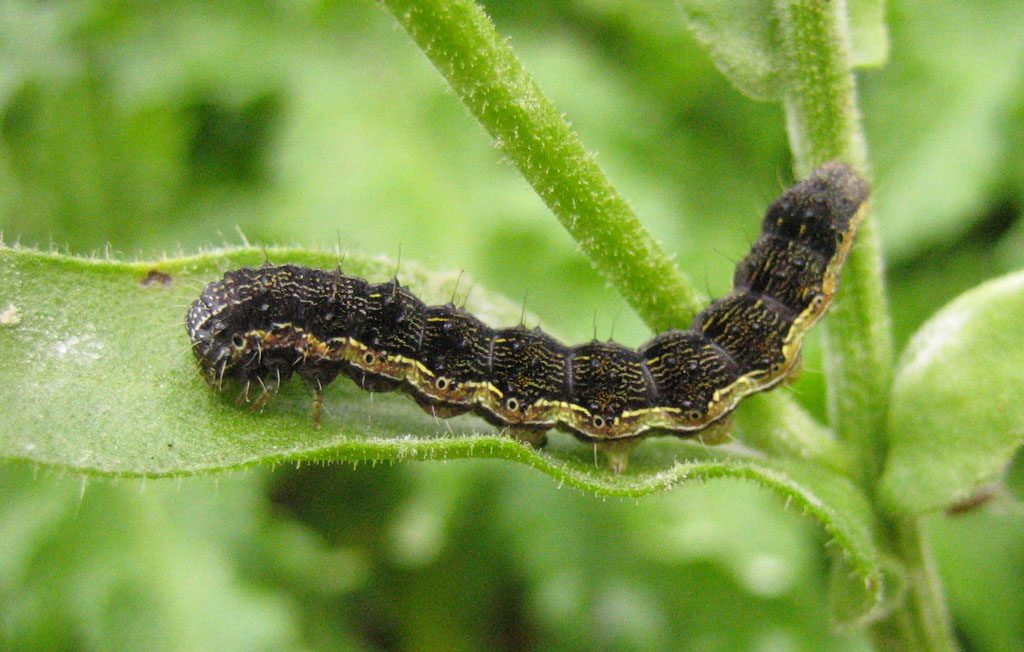Maize’s New Protector: Parasitic Wasps
Certain maize landraces obtained from South America have been found to have developed sophisticated defence strategies to cope with insect pests such as the spotted stemborer, Chilo partellus, it was reported today. These findings could help to increase maize yields and improve food security. The spotted stemborer, Chilo partellus, is now a major pest in…
Update: New Pest & Disease Records (10 Aug 11)
We’ve selected a few of the latest new geographic, host and species records for plant pests and diseases from CAB Abstracts. Click on the links to view the abstracts. A new species and new record of Eriophyoidea (Acari: Prostigmata) from Cuba. Torre Santana, P. E. de la (2011) Systematic and Applied Acarology 16 (2), 176-180.…
Cotton Topping Reduces Pests
Cotton topping has been reported to reduce bollworm infestations without negatively affecting cotton yields. Scientists in Mali looked at three bollworm species, which are responsible for the majority of cotton yield losses in sub-Saharan areas of Africa, where topping is no longer employed. Cotton topping is an agricultural technique in which the shoot tips of…
Update: Plant Health News (4 Aug 11)
Here’s a taste of some of the latest news stories about plant health: Researchers know their onions… NFU, 3 August 2011 Cotton ‘topping’ cuts bollworm infestations, study finds SciDev Net, 2 August 2011 Crop grazing shows promise as disease tool Grains Research and Development Corporation, 1 August 2011 EU sees the light on Epitrix NFU, 1 August 2011…
Cucumber Mosaic Virus Stopped By Slicing
Source: Scot Nelson, Flickr CC-licensed Food security can be compromised by a combination of different factors related to the environment, such as the current drought in East Africa. It can also be negatively impacted upon by insect pests that may migrate into new regions, or by native pests that have widened their feeding habits or…
Yellow Rust Adds to Famine Worries
Source: allafrica.com In terms of food security the big story recently is that two regions of southern Somalia are in the midst of a famine. More than 10 million people are currently at risk of starvation with 1.8 million people displaced in East Africa’s worst drought for 60 years. Ethiopia and Kenya are neighbouring food…
The life and travels of Tuta absoluta, the tomato leaf miner
The pesky tomato pest, Tuta absoluta, has decided in recent years that it wants to see a little more of the world. This moth is native to Peru and is probably widespread in all countries in South America, but in the last 5 years the pest has also been found in the Mediterranean, spreading at…
Update: New Pest & Disease Records (28 July 11)
We’ve selected a few of the latest new geographic, host and species records for plant pests and diseases from CAB Abstracts. Click on the links to view the abstracts. Wild host plants of four spider mite species (Acari: Tetranychidae) infesting fruit crops in Okinawa. Ohno, S.; Miyagi, A.; Gotoh, T.; Ganaha-Kikumura, T.; Shiromoto, K.; Kijima,…
Do you like your coffee wilted?
According to CABI’s Peter Baker at the recent ISEAL Conference the International coffee community may be failing farmers in providing them with support in adapting to upcoming climate risks. Changes in the climate can have dire consequences for farmers within developing countries. They can change the distribution ranges of insect pests, causing pests to migrate into…
New global plant health resource to improve food security
From the devastating Coffee Wilt Disease to the infectious Wheat Stripe Rust: for the first time ever, distribution maps, diagnostic support and treatment advice for thousands of the world’s most damaging pests and diseases of plants and crops are being made available free of charge on the new Plantwise website, www.plantwise.org, launched today. The Plantwise…


